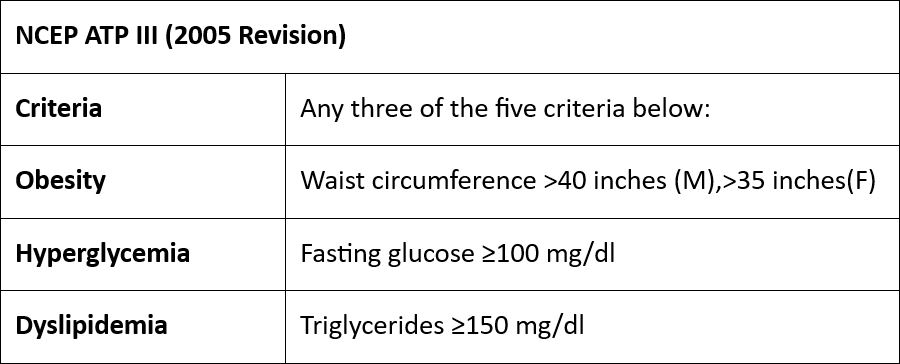Ayurvedic Insights into Metabolic Syndrome: Harnessing Ancient Wisdom for Holistic Health
DOI:
https://doi.org/10.21760/jaims.10.8.24Keywords:
Metabolic syndrome, Medopradoshaja Vikara, Santarpanottha VikarasAbstract
A growing global health concern is metabolic syndrome, a collection of linked disorders that include insulin resistance, central obesity, hypertension, and dyslipidemia. Ayurveda, an ancient Indian medical system, offers a comprehensive method for comprehending and treating this syndrome. In Ayurvedic literature, metabolic syndrome is linked to “Medopradoshaja Vikara " (Diseases due to vitiated Medodhatu) and "Santarpanottha Vikaras" (conditions caused by over-nourishment). The Ayurvedic approach emphasizes both preventive and therapeutic strategies, including Nidana Parivarjana (elimination of causative factors), Samshodhana (detoxification procedures like Panchakarma), and Samshamana, an Ayurvedic therapy designed to maintain balance in the body by managing doshas without purging them. Dietary modifications, Yoga, and daily routines (Dinacharya) also play a vital role in holistic management of the condition. Emerging research is starting to support Ayurveda's role in treating metabolic disorders and provide insight into how it can be integrated with contemporary medicine. As a result, Ayurveda has great potential for preventing and treating metabolic syndrome holistically, addressing the underlying causes of the illness, as well as its symptoms.
Downloads
References
Sahu S, Kumar S, Nagtode NR, Sahu M. The burden of lifestyle diseases and their impact on health services in India: a narrative review. J Family Med Prim Care. 2024 May;13(5):1612–9.
Khan Y, Lalchandani A, Gupta A, Khadanga S, Kumar S. Prevalence of metabolic syndrome crossing 40% in Northern India: Time to act fast before it runs out of proportion. J Family Med Prim Care. 2018;7(1):118.
Aryal N, Wasti SP. Prevalence of metabolic syndrome in South Asia: a systematic review. Int J Diabetes Dev Ctries. 2016;36(3):255–62.
Mohanan PP. Metabolic syndrome in the Indian population: public health implications. Hypertens J. 2016;2:1–6.
Kaushik R, Sharma P. Management of metabolic syndrome in Ayurveda: a case report. J Res Educ Indian Med. 2018;24(3–4):71–8.
Bhalwar R. Metabolic syndrome: The Indian public health perspective. Med J Armed Forces India. 2020;76(1):8–16.
Bhalwar R. Metabolic syndrome: The Indian public health perspective. Med J Armed Forces India. 2020;76(1):8–16.
Reaven GM. Metabolic or insulin resistance syndrome: Different names, concepts, and goals. Endocrinol Metab Clin North Am. 2004;33:283–303.
Grundy SM, Brewer HB Jr, Cleeman JI, Smith SC Jr, Lenfant C. Definition of metabolic syndrome: Report of the NHLBI/AHA conference on scientific issues related to definition. Circulation. 2004;109(3):433–8.
Alberti KG, Zimmet P, Shaw J. Metabolic syndrome—a new worldwide definition: A Consensus Statement from the International Diabetes Federation. Diabet Med. 2006;23:469–80.
Patil SH. Role of Ayurveda in Metabolic syndrome W.S.R. to Medo pradushajavyadhi: a review article. Int J Sci Res. 2021;10(6).
Agnivesha. Charaka Samhita. Ayurveda-Dipika commentary by Chakrapanidutta. Revised ed. Nidana Sthana 268 (4:7), p. 212. Varanasi: Chaukhambha Surbharati Prakashan; 2011.
Agnivesha. Charaka Samhita. Ayurveda-Dipika commentary by Chakrapanidutta. Revised ed. Sutra Sthana 270 (20:17), p. 115. Varanasi: Chaukhambha Surbharati Prakashan; 2011.
Arya H, Bishnoi M. Concepts of metabolic disorders in Ayurveda W.S.R. to Medoroga. Int J Creat Res Thoughts. 2023 Oct;11(10):b184–90.
Babu VV, Deepa MS. Metabolic syndrome–an Ayurvedic perspective. Int J Ayurveda Pharma Res. 2022;10(9):64–9.
Sharma RK, Dash B. Agnivesa Caraka Samhita. Reprint 2020. Vol. 1. Varanasi: Choukhamba Sanskrit Series Office; p. 395.
Sharma RK, Dash B. Agnivesa Caraka Samhita. Reprint 2020. Vol. 1. Varanasi: Choukhamba Sanskrit Series Office; p. 395.
Sharma RK, Dash B. Agnivesa Caraka Samhita. Reprint 2013. Vol. 2. Varanasi: Chaukhamba Sanskrit Series Office; p. 135.
Babu VV, Deepa MS. Metabolic syndrome–an Ayurvedic perspective. Int J Ayurveda Pharma Res. 2022;10(9):64–9.
Braunwald E, Hauser SL, Fauci AS, Longo DL, Kasper DL, Jameson JL, editors. Harrison’s Principles of Internal Medicine. 18th ed. New York: McGraw-Hill Medical Publishing Division; 1992. p. 9.
Sharma RK, Dash B. Agnivesa Caraka Samhita. Reprint 2020. Vol. 1. Varanasi: Choukhamba Sanskrit Series Office; p. 327.
Sodhi JS, Sharma R. Metabolic Syndrome in Ayurveda. World J Pharm Med Res. 2023;9(11):144–7.
Murthy KRS. Vagbhata’s Ashtanga Hridayam. Reprint 2009. Vol. 1. Varanasi: Chaukhamba Krishnadas Academy; p. 146–7.















